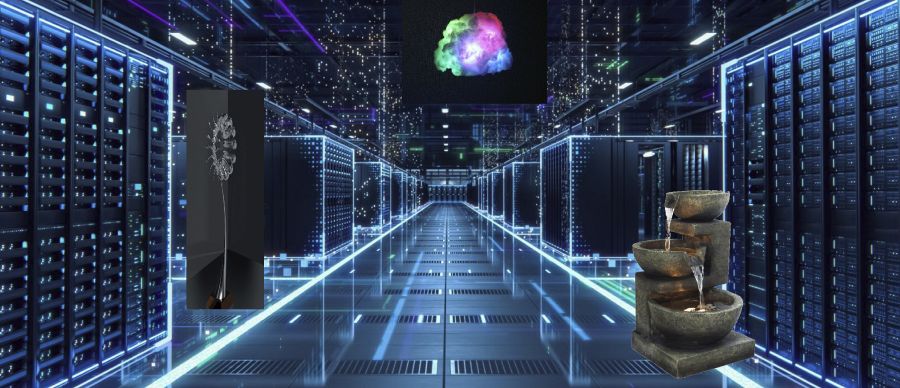No edit summary |
No edit summary |
||
| (7 intermediate revisions by 2 users not shown) | |||
| Line 10: | Line 10: | ||
''First meeting:'' October 23, 13:30 @ B15, K07 | ''First meeting:'' October 23, 13:30 @ B15, K07 | ||
[[File:Thumb.jpg|frameless|900x900px]] | |||
| Line 24: | Line 27: | ||
<u>Participants:</u> | <u>Participants:</u> | ||
* | * Luisa Schönn | ||
| Line 47: | Line 50: | ||
<u>Artists:</u> | <u>Artists:</u> | ||
*Konstantin Grcic & Random International | *Konstantin Grcic & Random International [https://www.random-international.com/audience] | ||
*Christina Kubisch | *Niklas Roy [https://www.niklasroy.com/project/88/my-little-piece-of-privacy] | ||
*Charlotte Poseneske | *Philippe Parreno [https://www.estherschipper.com/exhibitions/529-philippe-parreno/] | ||
*David Bowen [https://www.dwbowen.com/telepresentwater] | |||
*Jonah Scott [https://ualshowcase.arts.ac.uk/project/666587/cover] | |||
*Olafur Eliasson [https://olafureliasson.net/artwork/ventilator-1997/] | |||
*Christina Kubisch [https://christinakubisch.de/electrical-walks] | |||
*Charlotte Poseneske | |||
*Phillippe Parreno | *Phillippe Parreno | ||
*Ingo Vetter & Annette Weisser | *Ingo Vetter & Annette Weisser [https://ingovetter.com/project/adaptation-laboratory/] | ||
*Agnes Meyer-Brandis | *Agnes Meyer-Brandis [http://www.blubblubb.net/mga/mga-control-room.html] | ||
*... | *HeHe [http://www.hehe.org/projets/nuage-ver-ivry] | ||
*Timo Arnall, Jorn Knutsen, Einar Sneve Martinussen [https://www.youtube.com/watch?v=cxdjfOkPu-E&t=2s] | |||
*Jason Burges Studio [https://www.jasonbruges.com/art] | |||
*Nedko Sodakov | |||
<u>Other:</u> | |||
*The X-Files: Ghost in the Machine [https://www.michigandaily.com/arts/tv/what-the-x-files-got-wrong-about-ai-and-what-it-got-right/] | |||
*smart home [https://www.youtube.com/watch?v=dftKArsWaCs] | |||
*smart everything [https://www.youtube.com/watch?v=CIVl9RVIznE] | |||
| Line 59: | Line 78: | ||
*Udo Brandes – Mikrocontroller ESP32 [https://bibsearch.uni-weimar.de/search?q=id%3A1838896724&v=1838896724] | *Udo Brandes – Mikrocontroller ESP32 [https://bibsearch.uni-weimar.de/search?q=id%3A1838896724&v=1838896724] | ||
*Jennifer Gabrys – How to Do Things with Sensors [https://bibsearch.uni-weimar.de/search?q=id%3A1877802816&v=1877802816] | *Jennifer Gabrys – How to Do Things with Sensors [https://bibsearch.uni-weimar.de/search?q=id%3A1877802816&v=1877802816] | ||
*Jane Bennett – Vibrant Matter: a political ecology of things [https:// | *Jane Bennett – Vibrant Matter: a political ecology of things [https://carbonfarm.us/555/bennetexcerpt.pdf] | ||
*Katharina Hoppe – Neue Materialismen zur Einführung [https://bibsearch.uni-weimar.de/search?q=id%3A174386440X&v=174386440X] | *Katharina Hoppe – Neue Materialismen zur Einführung [https://bibsearch.uni-weimar.de/search?q=id%3A174386440X&v=174386440X] | ||
*Michel Serres – The Parasite [https://xenopraxis.net/readings/serres_parasite.pdf] | *Michel Serres – The Parasite [https://xenopraxis.net/readings/serres_parasite.pdf] | ||
*Shannon Mattern – Deep Mapping the Media City [https://icd.wordsinspace.net/wp-content/uploads/2017/08/mattern_deepmapping.pdf] | *Shannon Mattern – Deep Mapping the Media City [https://icd.wordsinspace.net/wp-content/uploads/2017/08/mattern_deepmapping.pdf] | ||
*Shannon Mattern – A City is Not a Computer. Other Urban Intelligences [https://press.princeton.edu/books/ebook/9780691226750/a-city-is-not-a-computer-pdf?srsltid=AfmBOorB-whQXMgq_Jx8PoKJ9gvHpQZpDquuDp7HFtKzhRVXkOOiPsrP] | |||
Latest revision as of 15:10, 2 December 2025
Fachmodul
Lecturer: Christian Doeller
Times: Thursday 13:30 - 17:00
Venue: Bauhausstraße 15, room K07 (DIY Electronics Lab)
First meeting: October 23, 13:30 @ B15, K07
Description:
Clicking sounds of RFID-controlled door locks; footsteps echoing through hallways and stairwells; wastewater rushing intermittently through drainpipes; airflows being drawn in, guided through a labyrinth of shafts, and expelled back into the environment. Architectural infrastructures, once activated, unfold specific rhythms that more or less subtly manifest as physical phenomena such as sounds, vibrations, pulses of light, or movement.
In the seminar »Sensing the Campus«, we explore the university’s architectural infrastructure as a living organism. Our focus lies on the subtle, often overlooked traces and side effects of human and non-human interaction with the built environment. We begin with simple exercises that sharpen our bodily senses for processes that literally take place »behind the façade«. Subsequently, we work with electronic sensors to detect these phenomena and make them accessible as digital data. Our aim is to develop artistic experiments in the form of »Sensing Nodes« – parasitic detectors, that we distribute across the campus. Ultimately, we feed the collected data into a speculative data center, where it will be artistically visualized or transformed into new experiences such as movements, light impulses, or sounds.
In a series of workshops, we learn to work with microcontrollers (ESP32), electronic sensors, actuators (motors, LEDs, sound) and basic IOT applications. We practice sensitive observation of our everyday surroundings and design artistic concepts for detecting and translating our favorite phenomena. All participants will develop individual prototypes. Finally, we will activate and present our speculative data center as an immersive installation during the Winterwerkschau.
Open to beginners, no prior knowledge necessary. Requirements: interest in electronics and programming, enthusiasm for speculative artistic concepts, and a strong curiosity about the subtle and hidden processes of our everyday environment. Please register via email by October 12, 2025, to christian.doeller@uni-weimar.de with a short motivation letter and the subject »Sensing the Campus«.
Participants:
- Luisa Schönn
Schedule:
Materials:
- Github Repo [1]
Topics:
- related media art positions
- concepts of interactivity and sensor-actuator-systems
- concepts of smart home & IOT technologies
- DIY Electronics & ESP32 programming
- Sensors & Actuators
- Networking & data exchange with ESP32
Artists:
- Konstantin Grcic & Random International [2]
- Niklas Roy [3]
- Philippe Parreno [4]
- David Bowen [5]
- Jonah Scott [6]
- Olafur Eliasson [7]
- Christina Kubisch [8]
- Charlotte Poseneske
- Phillippe Parreno
- Ingo Vetter & Annette Weisser [9]
- Agnes Meyer-Brandis [10]
- HeHe [11]
- Timo Arnall, Jorn Knutsen, Einar Sneve Martinussen [12]
- Jason Burges Studio [13]
- Nedko Sodakov
Other:
Literature:
- Udo Brandes – Mikrocontroller ESP32 [17]
- Jennifer Gabrys – How to Do Things with Sensors [18]
- Jane Bennett – Vibrant Matter: a political ecology of things [19]
- Katharina Hoppe – Neue Materialismen zur Einführung [20]
- Michel Serres – The Parasite [21]
- Shannon Mattern – Deep Mapping the Media City [22]
- Shannon Mattern – A City is Not a Computer. Other Urban Intelligences [23]
Language & skill level:
- The module will be held in English, unless all participants are speaking German.
- No prior knowledge is required.
Criteria for passing:
- be on time, attend the classes, be active
- develop a prototype
- present your prototype during Winterwerkschau
- finalize a documentation on this wiki page

